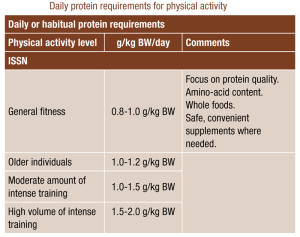Epilepsy is a neurological disorder characterized by recurrent seizures, affecting millions of people worldwide. Despite the availability of various anti-epileptic drugs, a significant number of individuals do not achieve adequate seizure control. As a result, alternative treatment approaches have gained attention, one of which is the ketogenic diet.
What is a Ketogenic Diet?
A ketogenic diet is a low-carbohydrate, high-fat diet that has been primarily used to manage drug-resistant epilepsy. The diet aims to induce a state of ketosis, in which the body switches its primary fuel source from glucose to ketones, produced through the breakdown of fat. This metabolic state has been reported to have a positive effect on seizure control.
Epilepsy and Ketogenic Diet: Early Research
The use of a ketogenic diet for the treatment of epilepsy dates back to the 1920s. Dr. Russell Wilder first introduced the idea that fasting or consuming a diet high in fat and low in carbohydrates could mimic the effects of fasting, leading to ketosis. Several studies conducted during that era reported significant reductions in seizure frequency among children with epilepsy following dietary interventions. However, with the advent of antiepileptic drugs, interest in dietary therapies waned.
Resurgence of Interest
In recent years, there has been renewed interest in the use of ketogenic diets as a complementary therapy for epilepsy, particularly among individuals who are refractory to standard medications. Research studies have aimed to determine the efficacy, safety, and potential mechanisms through which the diet exerts its antiepileptic effects.
Ketogenic Diet Mechanisms
The precise mechanisms underlying the antiepileptic effects of the ketogenic diet remain a subject of investigation. However, several proposed mechanisms have been put forward:
Increased GABA levels: The diet may increase the inhibitory neurotransmitter gamma-aminobutyric acid (GABA) in the brain, reducing excessive neuronal excitability.
Modulation of ATP-sensitive potassium channels: Ketones are suggested to modulate the activity of these channels involved in regulating neuronal excitability.
Enhanced mitochondrial function: The diet may improve mitochondrial function, leading to enhanced energy production and stabilization of brain cell activity.
Efficacy of Ketogenic Diet for Epilepsy
Various studies have evaluated the efficacy of the ketogenic diet in managing epilepsy, particularly in pediatric populations. While the exact response rates vary, a systematic review conducted by Kverneland et al. reported an average seizure reduction of around 50% in approximately 60% of patients following a ketogenic diet. Notably, a subset of individuals achieved complete seizure control.
Adherence Challenges and Side Effects
Although the ketogenic diet has shown promise as an alternative therapy for epilepsy, adherence to the diet can be challenging. The strict dietary restrictions, including limiting carbohydrate intake and monitoring macronutrient ratios, can make it difficult for individuals to sustain the diet long-term. In addition, potential side effects such as kidney stones, constipation, and dyslipidemia may occur in some individuals.
Ketogenic Diet and Adult Epilepsy
While the majority of research on ketogenic diets for epilepsy has focused on pediatric populations, studies are gradually expanding to include adults. Preliminary data suggest that a ketogenic diet may also be effective in reducing seizure frequency in adult patients, although further research is needed to determine its optimal use in this population.
Epilepsy is a neurological disorder that poses significant challenges for patients and healthcare providers alike. The ketogenic diet has emerged as a potential adjunctive therapy for individuals with drug-resistant epilepsy, offering hope for improved seizure control. While the exact mechanisms are not yet fully understood, research has demonstrated the efficacy of ketogenic diets in reducing seizure frequency, particularly in pediatric populations. However, adherence challenges and potential side effects must be carefully considered when implementing this diet. With continued research and advancements in dietary therapies, the ketogenic diet may play an important role in the management of epilepsy in the future.




